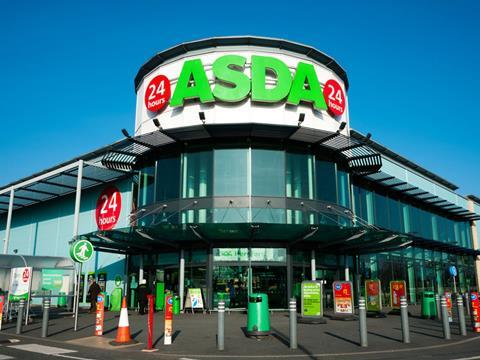
Being owned by the world’s biggest retailer is clearly no longer enough for Asda. As the biggest loser (of the big four) in 2015, and once again over Christmas, CEO Andy Clarke has been forced to take further action this week, announcing an alliance with 250 European supermarket chains to boost its buying power.
Warning of further “turbulent” times ahead and admitting Asda had been too slow to respond to the discounters, Clarke says its decision to join the EMD group will “shake up” its underperforming own-label range and close the gap with Aldi and Lidl on price to just 5% - and it could herald an avalanche of cheaper, European-produced imports on its shelves.
So who are EMD? Why does Asda need it? And is this really going to seize back the initiative?
EMD is not just a bunch of B list retailers. Representing 14 national buying structures with combined sales of €178bn, it includes France’s Groupe Casino, the sixth-largest listed retailer, Swiss wholesale and retail giant Markant and Spain’s Euromadi, which alone boasts nearly 5,000 own-label brands. Altogether EMD operates in 16 countries with over 150,000 points of sale and 300 million sq ft of retail floorspace.
Desperation
Yet some question what its arrival says about Walmart’s backing and the supermarket’s faith in its own buyers.
“For me this smacks of desperation,” says one former senior Asda source. “The words I’ve heard, from people who know the business inside out, include embarrassing, bizarre and just downright bonkers.”
Chris West, vice president of commercial transformation at Asda, refutes suggestions that the latest move is a vote of no confidence in Asda’s buyers. “It’s absolutely the opposite,” he says. “We see this as a great opportunity to make a world class buying team sharper. I think they will be very excited about it.”
And West adds that critics misunderstand the Asda/Walmart model and underestimate how serious Clarke is about rattling cages.
“We’re clear our current ways of working need to be revised,” he says. “We’ve got to shake things up. There are a number of elements relating to price but also to quality and private label differentiation. For that we need to look to Continental Europe where we can deliver that scale.”
Turbulent times appear inevitable for Asda’s own-label suppliers, with Clarke this week pledging to throw a further £500m at reducing prices, in addition to the decision to join EMD - two months after The Grocer revealed Asda was planning a major range rationalisation as part of Clarke’s Project Renewal range rationalisation.
West characterises the plans as a “space swap”, and says EMD will play a central role, although he denies British suppliers should be looking over their shoulders.
“I don’t think this is about squeezing suppliers,” he says. “I wouldn’t characterise this as turning the screw.”
We’re asking our suppliers, and we’ve been talking to them about this for months, how they can help us improve. “At the end of the day we want folks that are allied to our common purpose and we’re challenging them to work with us so we can be better.””
While Walmart’s buying power is strongly felt in areas such as clothing and GM, it is in Europe, says West - where suppliers bear the scars (and reap the rewards) of working with limited-range discounters - that savings are to be had, both on the price of own-label ranges and not-for-resale costs, with areas such as packaging also in Asda’s sights.
“There are some products where our customers will insist we are very focused on primarily British sourced products and that will continue,” says West, who insists there will be “no compromise” on quality, in fact the reverse. “And in those cases, being part of EMD means we can champion them across Europe. It’s a win-win.
“Obviously we will look to use our Walmart family first,” he adds. “With food sourcing, though, the reality is you have to think more regionally. We’re asking how we create more opportunities against the other big three, not just the discounters.”
European perspective
Asda is not the first major UK food retailer to work within a buying group, with Morrisons and Booker among those part of Amsterdam-based AMS. One of its most high-profile ventures was the rollout of the Euro Shopper budget range, now sold by Booker and across seven countries across Europe in total.
And Robert Gregory, global research director at Planet Retail, thinks Asda is right to focus on trade relationships in Europe. In the year when potential European exit is set to dominate the agenda, trade relationships with the UK’s food retailers and their European cousins are becoming pivotal, he says.
“Buying groups have been sweeping across Europe and have become one of the biggest trends,” says Gregory. “It hasn’t really impacted on UK grocery until now but Asda’s move is potentially very significant,” he says. “It’s a way to increase efficiency and to try to increase margins but it’s not just about price. Asda has released that price alone is not enough, they have to do something about the quality of their own label range because at the moment they are not only being beaten by the discounters but are lagging behind the rest of the big four.”
But Bruno Monteyne, senior analyst at Bernstein is sceptical. “There are certainly parts of the range where Asda is weak and being part of this buying group may help,” he says. “As part of the puzzle of improving the shopping experience, maybe it can help but as a magic solution to price, I don’t think so.”
Indeed experts believe Asda will be unable to realise a big chunk of the extra £500m in the timescale without going cap in hand to Walmart. One grocery retail CEO says: “It’s difficult to see where the last half a million went.”
And the former Asda source believes “you have to question Walmart’s faith in Asda. It’s had a five-year strategy and has now had to rip it up completely, in fact we’ve had several announcements in the last few months. Asda has always been about price. Now it is no longer able to play that game, quite frankly it doesn’t know what to do, whereas the likes of Aldi, Lidl and Amazon are playing the long game.”







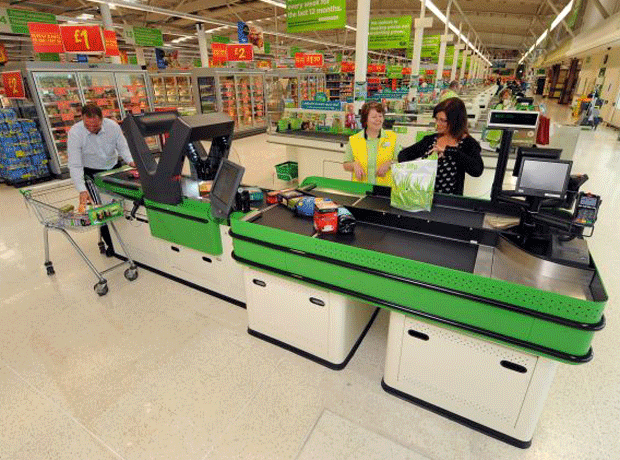
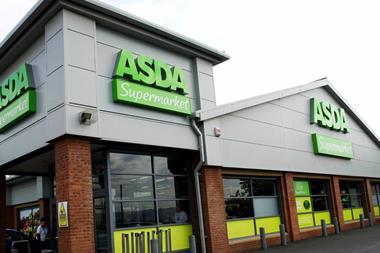
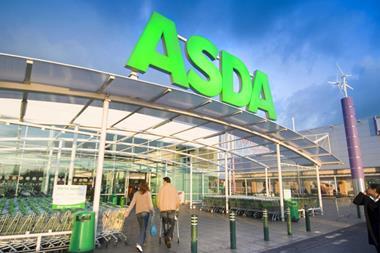

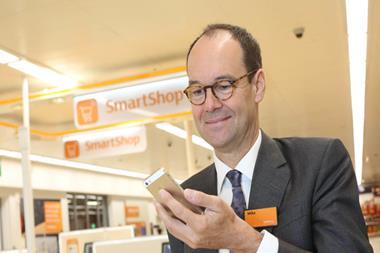
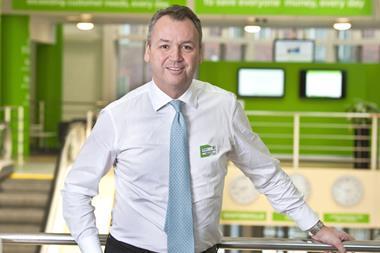






No comments yet